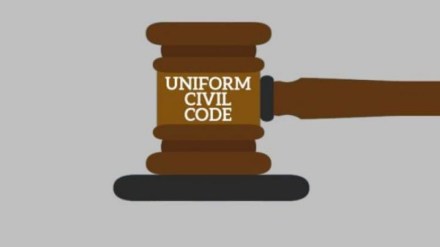In a major development, the Uttarakhand High Court has granted individuals impacted by the enforcement of the Uniform Civil Code (UCC) the right to approach the court against any move made by authorities. This comes after the Uttarakhand government announced the enforcement of the UCC, with the state becoming the first to implement the code.
The High Court passed this order during the hearing of petitions challenging the UCC’s enforcement in the state.
“If any individual is affected, they may approach this bench…If any action is taken, please come (to us)…” remarked the Division Bench of the High Court.
Chief Justice G. Narendar, speaking to Senior Advocate Kapil Sibal, who represented the petitioners, assured that individuals facing penal actions under the UCC would have the opportunity to be heard by the court. The High Court had earlier issued notices to the Uttarakhand government, seeking a response to the petitions challenging the new law.
This order comes in the wake of the Uttarakhand government issuing a strong warning against the misuse of the UCC through false complaints. A statement released by the government on Thursday emphasized that anyone lodging false complaints under the law would face fines, which would be recovered as land revenue.
The state government has also brought in a system of structured penalties to deter abuse of the UCC. Under Chapter 6, Rule 20 (Subsection 02) of the UCC rules, those who make false complaints will be warned first. A second offense will incur a fine of Rs 5,000, and a third offense will incur a Rs 10,000 penalty.
The fine must be paid online within 45 days, or the amount will be recovered through a tehsil officer. The government stated that this provision is designed to prevent harassment and ensure that applications and registrations under the UCC remain free of disputes.
BJP-ruled Uttarakhand became the first state in Independent India to adopt the UCC on January 27. The legislation aims to harmonize personal laws relating to marriage, divorce, and property for all religions, and it has evoked both praise and criticism.
One of the most controversial provisions of the UCC is requiring live-in relationships to be registered, which some critics say may infringe upon people’s privacy rights. But Chief Minister Pushkar Singh Dhami defended the step, saying it would serve to prevent such crimes as the brutal killing of Shraddha Walkar at the hands of her live-in boyfriend, Aftab Poonawala.
